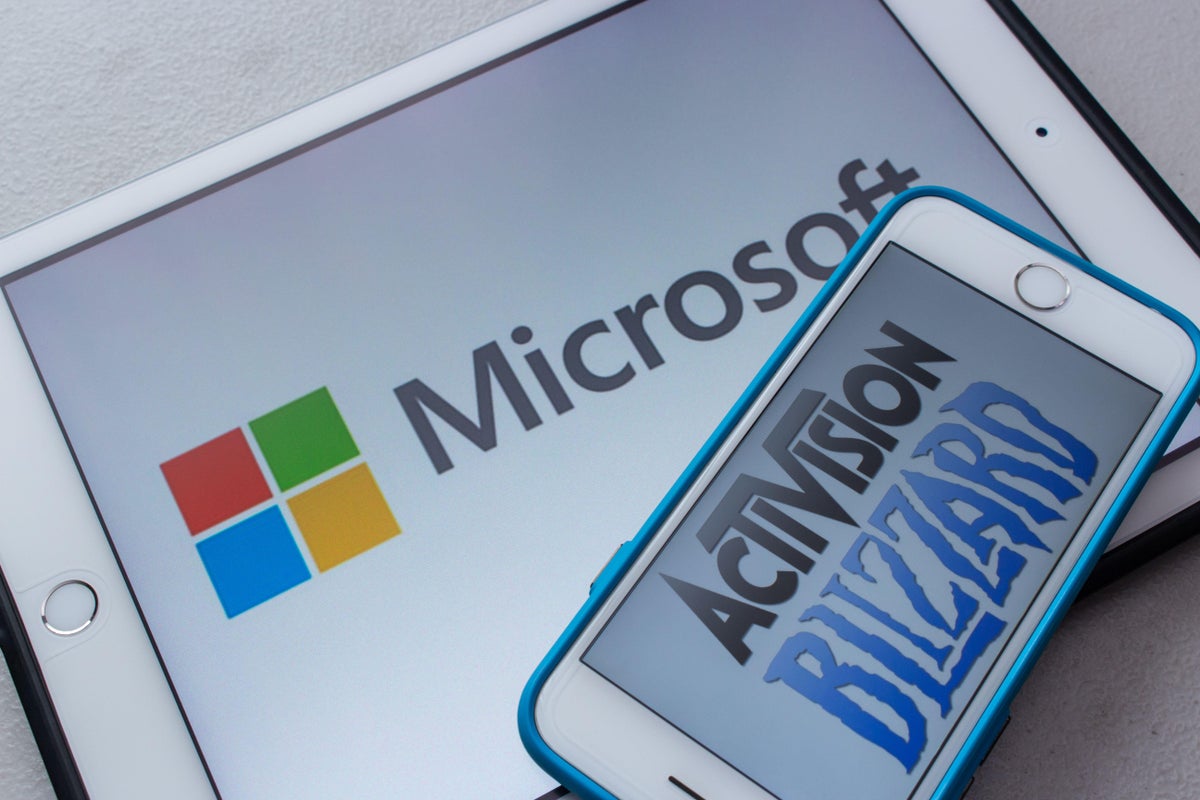
Microsoft has hit out at the UK competition watchdog for blocking the company’s takeover of gaming firm Activision Blizzard, claiming it shows European Union is now a better place for business than Britain.
Brad Smith, the company’s vice chair and president, said it was a “bad day for Britain” after the Competition and Markets Authority (CMA) blocked the US tech company’s $68.7billion (£55billion) buyout of the Call Of Duty maker, amid fears the tie up could lead to less innovation and less choice for gamers.
Describing the decision as “probably the darkest day” in Microsoft’s 40-year history in the UK, Mr Smith launched a scathing attack on the regulator and said the decision would “shake the confidence among the business community in the UK”.
He told BBC Radio 4: “I have already heard from a great many around the world.
"People are shocked, people are disappointed and people’s confidence in technology in the United Kingdom has been severely shaken.”
He added: “For all of us who had some hope that, post-Brexit, the UK would construct a structure that would even be more flexible, that would be better for investment, better for technology, we’re now finding the opposite appears to be true.”
Mr Smith urged the prime minister to “look hard at the role of the CMA” and consider the “message the United Kingdom has just sent to the world” by thwarting the deal.
He added: "I don’t think people are going to want to start a company in a country and will then have regulators who will stop them from selling it to another company if the day arrives.
"There’s a clear message here. The European Union is a more attractive place to start a business if you want some day to sell it than the United Kingdom."
Mr Smith added that the “English Channel has never seemed wider” - threatening the PM and chancellor Jeremy Hunt’s plans to turn post-Brexit Britain into a thriving hub for technology firms.
“It leaves people worried and it leaves people thinking that actually the process in Brussels worked far better than what we’re now addressing in London,” he said.
Mr Sunak has spoken previously about wanting to turn the UK into a “beacon of science, technology, and enterprise”, while Mr Hunt has said he wants to “turn Britain into the world’s next Silicon Valley”.
Microsoft makes Xbox video game consoles and for years has been locked in a battle for supremacy with Japanese giant Sony, which makes the PlayStation. The CMA feared Microsoft gaining control of hugely popular games such as Call of Duty and World of Warcraft would increase its dominance in the fast-growing cloud gaming market, potentially undermining innovation.
The chief executive of the Competition and Markets Authority (CMA) rejected Mr Smith’s criticism, saying the UK is “absolutely open for business”.
Sarah Cardell told the BBC its decision would be good for UK gamers and businesses and was aimed at “creating an environment where a whole host of different companies can compete effectively, can grow and innovate”.
She added that the CMA is not the only regulator opposed to the deal, with the US Federal Trade Commission suing in an attempt to block it.
She told the Today show: “Our concerns really focused on cloud gaming. Microsoft is already the most powerful cloud gaming platform, at the moment it has a market share of 60 per cent to 70 per cent. That would be combined with Activision, which has a hugely important portfolio of games.
“What our independent decision group found after a long and careful investigation was that combining those two businesses would really reinforce Microsoft’s strong position in cloud gaming. That would be problematic because it would really harm the ability of other platforms to compete effectively.”







